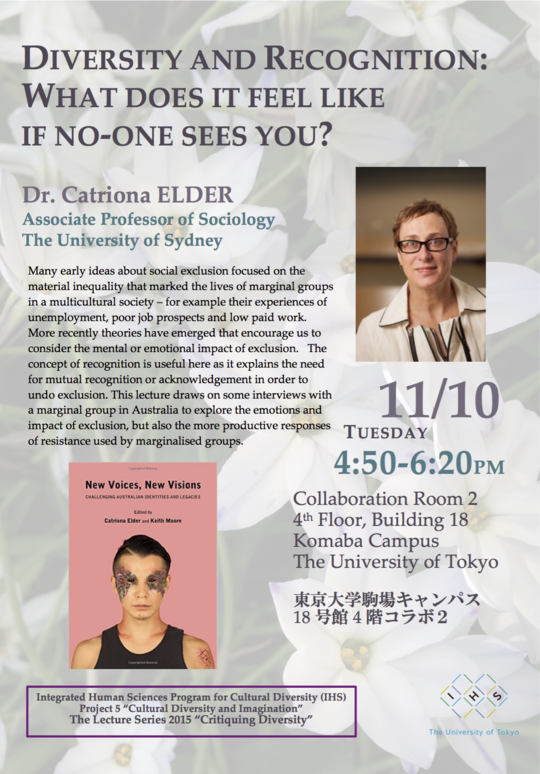- Time and Date
- 4:50-6:20PM, Tuesday, November 10, 2015
- Venue
- Collaboration Room 2, 4th Floor, Building 18, The University of Tokyo, Komaba
- Speaker
- Dr. Catriona Elder(Faculty of Arts and Social Sciences, The University of Sydney)
- Language
- English
- Note
- Admission Free; No Registration Required
- Organized by
- the Educational Project 5 "Cultural Diversity and Imagination," Integrated Human Sciences Program for Cultural Diversity, The University of Tokyo
Project 5 "Cultural Diversity and Imagination" is pleased to invite Doctor Catriona Elder (The University of Sydney) to give us a lecture for the series of "Critiquing Diversity." It is a great opportunity for all of the IHS students regardless of their fields to interactively discuss cultural diversity with Dr. Elder by introducing the case of Australia. Your participation is highly encouraged.
Abstract of the lecture
Many early ideas about social exclusion focused on the material inequality that marked the lives of marginal groups in a multicultural society-for example their experiences of unemployment, poor job prospects and low paid work. More recently theories have emerged that encourage us to consider the mental or emotional impact of exclusion. The concept of recognition is useful here as it explains the need for mutual recognition or acknowledgement in order to undo exclusion. This lecture draws on some interviews with a marginal group in Australia to explore the emotions and impact of exclusion, but also the more productive responses of resistance used by marginalised groups.
* N.B.
- IHS students will be asked to submit a report essay after attending the lecture.
- By participating in this event, you acknowledge that you are aware that pictures, video, and audio of the event may be used for the purpose of the program.

